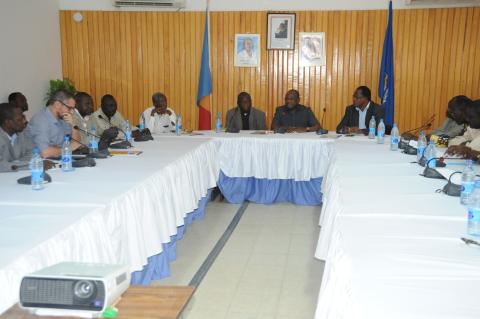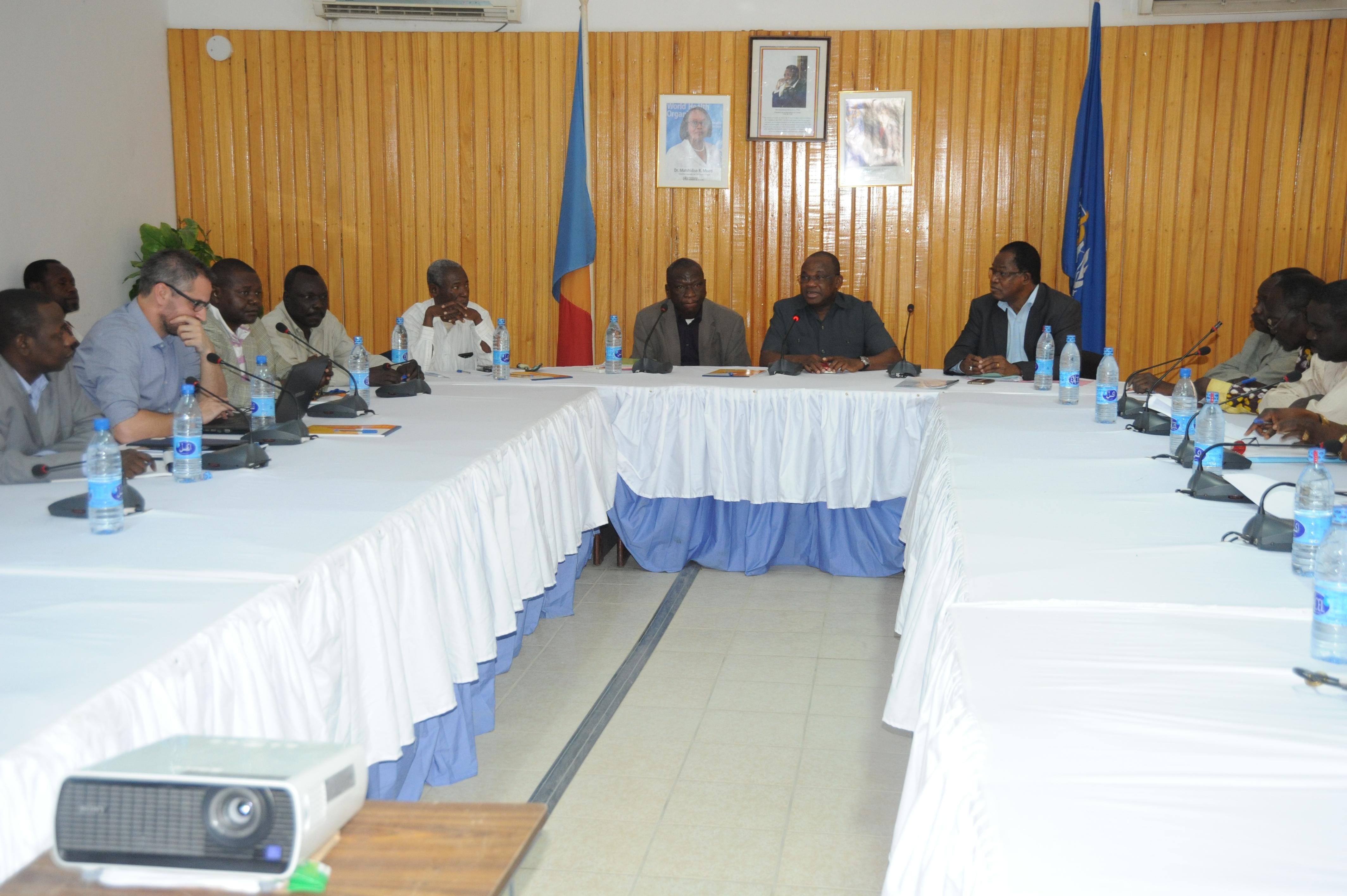
With the Millennium Development Goals (MDGs) deadline fast approaching, negotiations are in full swing towards September’s finalization of Sustainable Development Goals (SDGs). To rectify the United Nations’ perceived top-down approach toward the formulation of the MDGs, widespread negotiations are underway that seek to include the voices of people and communities from around the globe to ground each post-2015 development goal in local realities.
It is in this context that Dr. Rohingalaou Ndoundo, Director General for health operations within Chad’s Ministry of Health (MoH), reminded his audience in his opening speech to a multi-stakeholder workshop about the importance of mainstreaming community participation within the health sector.
“As we all know, an international momentum has emerged around the inclusion of community participation in all aspects of health projects,” said Dr. Ndoundo. “Our country, Chad, cannot continue to remain on the sidelines of this global momentum.”
The workshop was organized by the Ministry of Health on 17-19 March in Chad, with the support of development partners including the EU-LUX-WHO Partnership on Universal Health Coverage (UHC).
Around 40 participants from institutions as diverse as national health bodies, community health organizations and development partners, were invited by Dr. Ndoundo to actively contribute “without complexes and false modesty” to the development of his country’s new Community Health Strategic Plan (PSSC) 2015-18.
Aimed at operationalizing Chad’s National Community Health Strategy, adopted in late 2014, the plan will be piloted in 10 (out of Chad’s 23) health regions, with the intention of scaling it up to cover all regions in a subsequent five-year phase (2019-23).
Passionate and frank debates
During three days of the workshop, all parties shared their thoughts on community health priority issues and interventions according to the four strategic areas identified in the National Community Health Strategy, namely: (i) Increased access to quality community health services, (ii) Strengthened capacities of community health actors, (iii) Strengthened community participation, and (iv) Improved leadership and management of community-based health services.
Passionate and frank debates arose, in what Dr. Ndoundo saw as a “courteous, studious and prolific” atmosphere, on a wide range of key issues around the plan, including, among others its duration; the selection criteria for pilot regions/zones; reforming national and local-level community health governance structures; standardizing recruiting, training and incentives for community health agents, as well as improving community involvement mechanisms.
Reflections were also shared about what were seen as the key gaps of the plan, such as the absence of a proposal for applied research activities on community health.
A flagship document
The discussions resulted in the finalization of a first draft for the plan, including recommended priority interventions for each of the four strategic areas. The plan will be submitted to a national PSSC adoption workshop to take place in the month of June.
“Thanks to your farsighted contributions … we have reached an important milestone in the process of building a relevant and dynamic community health system in Chad,” said Dr. Ndoundo in his closing speech.
Refreshingly pragmatic and straightforward in its nature and wording, the first draft of the plan already reflects the meaningful multi-stakeholder consultation and truly participatory drafting process it had been based on.
Nearly all comments and constructive critiques raised during the March meeting were taken into account: Pending community health governance issues were addressed; roles and responsibilities, recruitment, and training for community management committees and community health agents were redefined; key performance monitoring indicators were established and, perhaps most importantly: a concrete and budgeted activity timeline was drawn up to trace implementation between 2015 and 2019.
If the final version of the plan, expected to be officially launched around June, follows in these footsteps, it could well become a flagship document for community engagement and empowerment in Chad.
